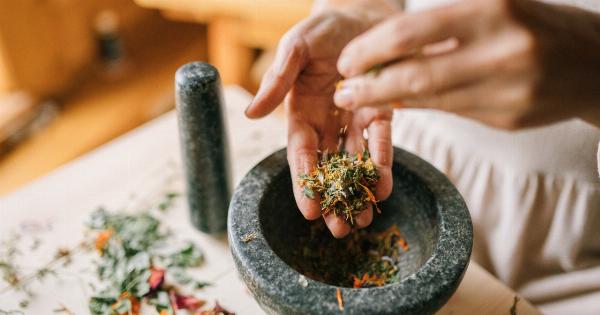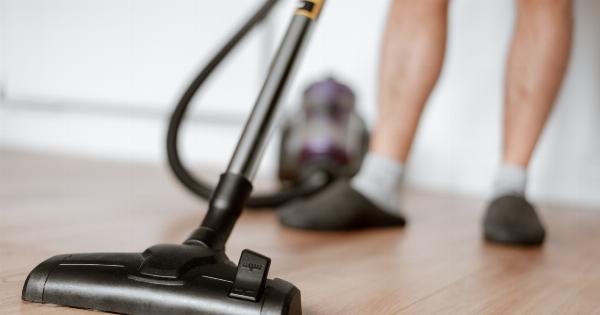Allergies are a common problem affecting millions of people around the world. They are caused by an immune system response to a foreign substance in the body, often known as allergens.
These allergens can be anything from food and pollen to dust and pet dander. While allergies can be frustrating, it’s essential to understand that the way you handle them can worsen or improve the symptoms. In this article, we’ll explore how your mistakes can make your allergies worse.
Not Paying Attention to the Environment
One of the significant mistakes people make is not paying attention to the environment they are in. For instance, suppose you have an allergy to pollen but decide to go on a hike or even picnic in an open field.
In that case, your symptoms are bound to worsen. Pollen grains will be inhaled and settled on your skin, causing itching, sneezing, and even respiratory problems.
Another environmental factor to watch out for is the air conditioning system. Most people stay indoors for longer hours, and it’s essential to ensure the air conditioning system is clean and free of any allergens.
Dirty air filters can harbor dust mites, pet dander, and even mold, leading to allergy flare-ups. So, make it a habit to change the air filter regularly and ensure the system is adequately maintained.
Skipping Medication
Many people with allergies often think that skipping medication is no big deal. However, that couldn’t be further from the truth. Medication plays a significant role in treating allergies by reducing the severity of symptoms.
Skipping medication, especially when symptoms have subsided, can result in an allergy relapse.
To avoid this, always take your medication as prescribed by your doctor and on time. You could also set reminders on your phone to ensure you never forget to take your drugs.
Over Reliance on Home Remedies
While home remedies like drinking honey or using essential oils might offer temporary relief, over-reliance can make allergies worse. This is because some remedies have not been tested or scientifically proven to treat allergies.
Furthermore, some remedies can trigger symptoms, leading to a severe allergic reaction. It’s best to speak with your doctor concerning the best treatment options available for your allergies.
Using Cigarettes or Tobacco
Using cigarettes or any tobacco products is a mistake that can make your allergies worse. Cigarette smoke irritates the lungs and the nasal passage, leading to an increase in mucus production.
For people with asthma or respiratory problems, tobacco use can cause severe allergic reactions, affecting their quality of life.
If you’re a smoker, quitting is the best option for your health and wellbeing. Speak with a doctor or look for support groups to help you break the addiction.
Overexposure to Chemicals
In this age of innovation and technology, exposure to various chemicals has become inevitable. Household cleaning products, pesticides, and beauty products can all trigger an allergic reaction and cause a worsening of symptoms.
It’s essential always to read labels and look for products marked “hypoallergenic” or “fragrance-free.” These products are generally less likely to trigger a reaction. You could also consider using natural cleaning products like vinegar or baking soda.
Not Cleaning Up After Pets
Pets are known to be some of the most common allergens in the world. Their dander and saliva cause allergy symptoms like sneezing, skin rashes, and wheezing.
Not cleaning up after your pets can escalate allergy symptoms, leading to severe allergic reactions. It’s crucial to clean up pet waste immediately and regularly wash pet beds and toys. You could also designate pet-free zones in your home, giving you a respite from allergen exposure.
Eating the Wrong Foods
Some people with allergies unknowingly eat foods that trigger an allergic reaction. For instance, if you’re allergic to peanuts, consuming a food item that contains peanuts will trigger an allergic reaction.
It’s essential always to read food labels, especially if you have a food allergy, and avoid eating from unknown sources as cross-contamination can happen.
Overall, it’s best to work with your doctor to come up with a comprehensive list of foods to avoid.
Not Keeping Stress Levels in Check
Stress is known to worsen allergy symptoms, and many people often overlook this fact. When stressed, the body produces hormones like cortisol, which can alter the immune system’s functions and make allergies worse.
It’s essential to keep stress levels in check by adopting relaxation techniques like yoga or meditation. Additionally, getting adequate sleep, regular exercise, and taking breaks from work also help to manage stress levels.
Not Consulting a Doctor
Lastly, not consulting a doctor is a grave mistake that can make your allergies worse. Many people with allergies often self-diagnose or ignore their symptoms, leading to the worsening of the condition.
Always make a point to consult with a doctor, especially if symptoms persist or worsen. This ensures that the appropriate diagnosis and treatment are received.
Conclusion
In conclusion, allergies can be challenging, but the mistakes you make can make them worse.
Not paying attention to the environment, skipping medication, over-reliance on home remedies, using cigarettes or tobacco, overexposure to chemicals, not cleaning up after pets, eating the wrong foods, not keeping stress levels in check, and not consulting a doctor are all mistakes that can be avoided. It’s best to work with your doctor to come up with the best treatment plan for your allergies, ensuring you live a healthy and fulfilling life.




























